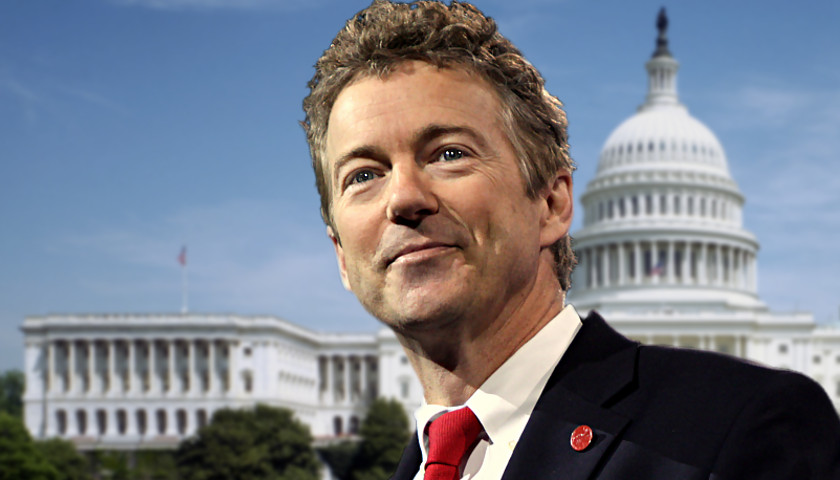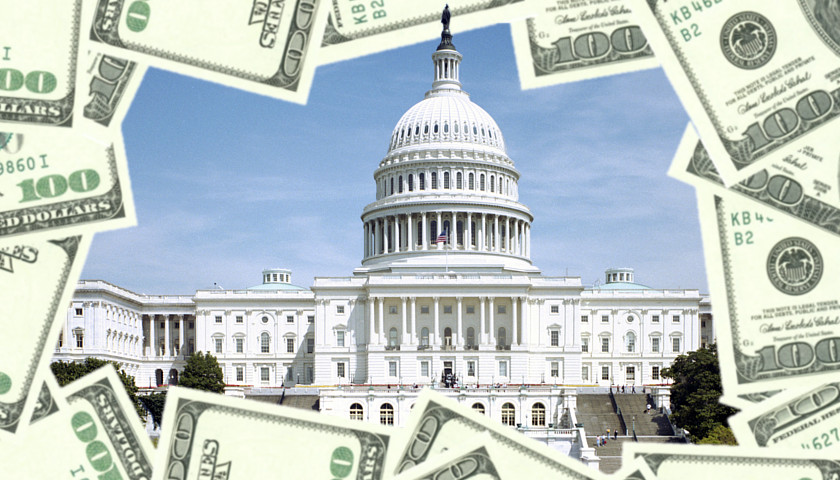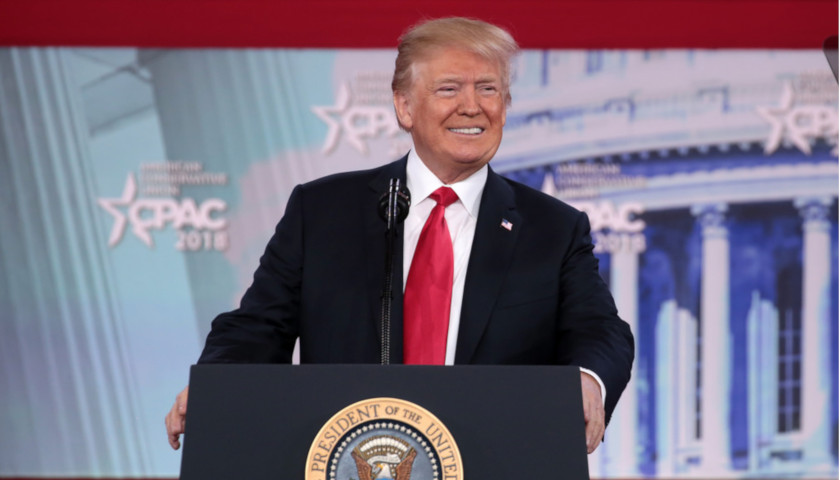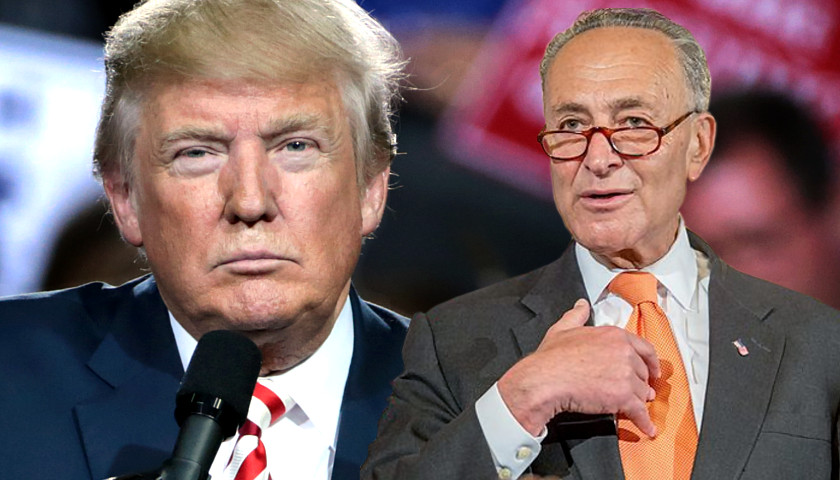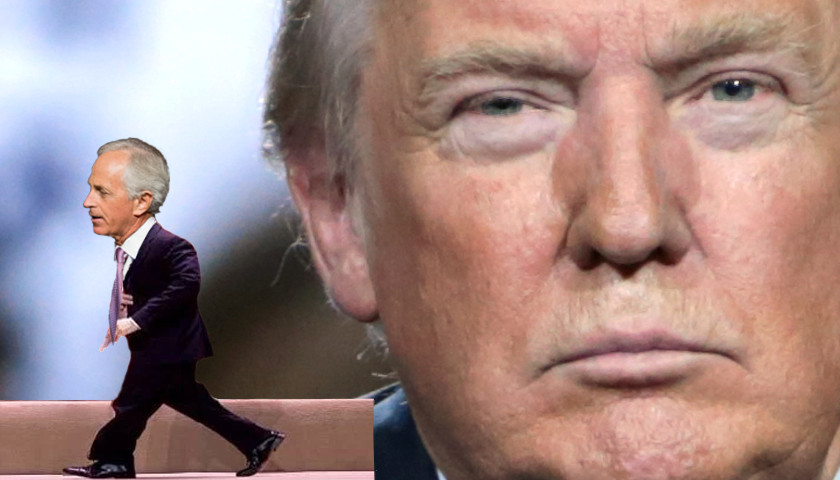by Bethany Blankley The U.S. national debt exceeds $21.5 trillion. That’s almost quadruple the national debt when President George W. Bush first took office in 2001. Earlier this month, the U.S. Senate held a vote on Sen. Rand Paul’s Penny Plan, which would reduce federal government spending and implement fiscal restraint reforms. Only 22 U.S. Senators voted for the Penny Plan, with 25 Republican senators and all Democrats voting against it. The Senate vote came months after about 130 U.S. leaders called on President Donald Trump to lead a “transparency revolution,” and reign in out-of-control federal government spending. “With the economy booming, wages rising, competitive tax rates, domestic energy production flourishing, and unemployment at a near 50-year low across every demographic – the federal debt continues to skyrocket. This is unsustainable,” they wrote in an open letter to the president. Trump responded by directing his federal agency heads to cut five percent of their budgets. Former Sen. Tom Coburn, R-Oklahoma, and honorary chair of OpenTheBooks.com, and Adam Andrzejewski, CEO and founder of the watchdog advocacy group, said Trump’s “war on federal government waste” was “a great first step and an achievable goal.” However, his “willingness to lead by example” was…
Read the full storyTag: national debt
Commentary: Skyrocketing Debt Too Important to Be Paired With Spending Deal
by Justin Bogie Two major issues that Congress will be forced to confront in the coming weeks and months are the debt limit and the future of the Budget Control Act discretionary spending caps. A report from The Hill indicates that negotiations are underway between Congress and the Trump administration to combine a two-year budget caps deal with an increase or suspension of the debt limit. Taxpayers have seen this failed approach before. For lawmakers, pairing an unpopular action, like raising the debt limit, with massive spending increases sweetens the deal. The total national debt is more than $22 trillion. An unpaid for budget deal could add at least another $2 trillion. Congress should debate the debt limit and new spending thoroughly and separately. Importantly, lawmakers must not make the fiscal situation any worse. As of May 17, the debt subject to the limit was $21.9 trillion and just $25 million short of eclipsing the limit. In total, the Treasury estimates that the national debt has increased by more half a billion dollars since Oct. 1. For the time being there is no immediate risk that the federal government will have to stop making payments or providing services. The…
Read the full storyCommentary: National Debt Could Top $100 Trillion by 2037 If Congress Ignores Trump Budget
by Robert Romano The national debt, now $22 trillion, grew by almost $1.5 trillion in 2018 as spending in Washington, D.C. continues to outpace the growth of the economy and revenues. Since 1980, the U.S. national debt has grown an average of 8.8 percent every fiscal year, but during that same period, the U.S. economy has only averaged 5.4 percent growth economic nominally before adjusting for inflation. As a result, the debt is now 105 percent of the economy. And if those trends were to continue, the debt will top $100 trillion in 2037, and exceed 193 percent debt to GDP. It’s not something that pleases me to report. I surely hope I am wrong. But even if it only grew by 7 percent, as it did last year, that still would ratchet the debt to more than $78 trillion by 2037. In plain terms, that is simply unsustainable and yet a very predictable outcome if Congress cannot get its act together. Making matters worse, it appears likely they will not get the fiscal house in order — and economic growth will be nowhere near 5.4 percent nominal, annual growth. One of the reasons for the steady growth of…
Read the full storyCommentary: Debt Prioritization in Appropriation Proposals Now Will Defang the Democrats’ Shutdown Threat in the Future
By Robert Romano Senate leaders have reached a bipartisan agreement on the 2018 budget that provides another six weeks of funding for the federal government. It gets there by ending the remainder of budget sequestration, a remnant of the 2011 debt ceiling deal, increasing defense spending by $160 billion and non-defense spending by $131 billion the next two years. As a result, one outcome for certain is there is going to be another major increase in the national debt, now nearly $20.5 trillion, without any major reforms to rein in future spending. And now there is talk of adding an increase to the debt ceiling to the legislation as well, which Sen. Roy Blunt (R-Mo.) suggested would be extended until March 2019. Article I is only as good as the Congress we elect. The reality the nation’s fiscal house faces is the only way to get 60 votes to increase defense spending, a top Trump administration priority, is to get 60 votes to increase non-defense spending, and Republicans still lack the votes to go nuclear and eliminate the filibuster on appropriations bills. Lacking leverage or a means of resolution, these are the types of deals that will be produced, and have been…
Read the full storyTennessee U.S. Senator Bob Corker Stands By Statements Criticizing Trump Over Charlottesville
COLUMBIA, Tennessee — U.S. Sen. Bob Corker (R-TN) on Friday defended his remarks Thursday criticizing President Trump for his comments about the violence in Charlottesville, Virginia, last weekend between white supremacists and leftist radicals. Corker was in Columbia on Friday to speak at a joint luncheon of the Rotary and Kiwanis clubs at the Memorial Building downtown. On Thursday in Chattanooga, Corker questioned Trump’s competence and said, “He has not demonstrated that he understands what has made this nation great and what it is today, and he’s got to demonstrate the characteristics of a president who understands that.” Trump’s critics in the mainstream media and on the left, as well as some establishment Republicans, have maintained that Trump indirectly supported white supremacy by blaming both sides for the violence and saying there were innocent people on both sides. Asked by The Tennessee Star after Friday’s luncheon what he thought Trump should have said instead, Corker said he didn’t want to get into analyzing it further. “I’m trying to steer away from that,” Corker said. “What I said yesterday I think speaks for itself. Hopefully this, myself and maybe a few others speaking out, will have an effect. But I just want good…
Read the full story
